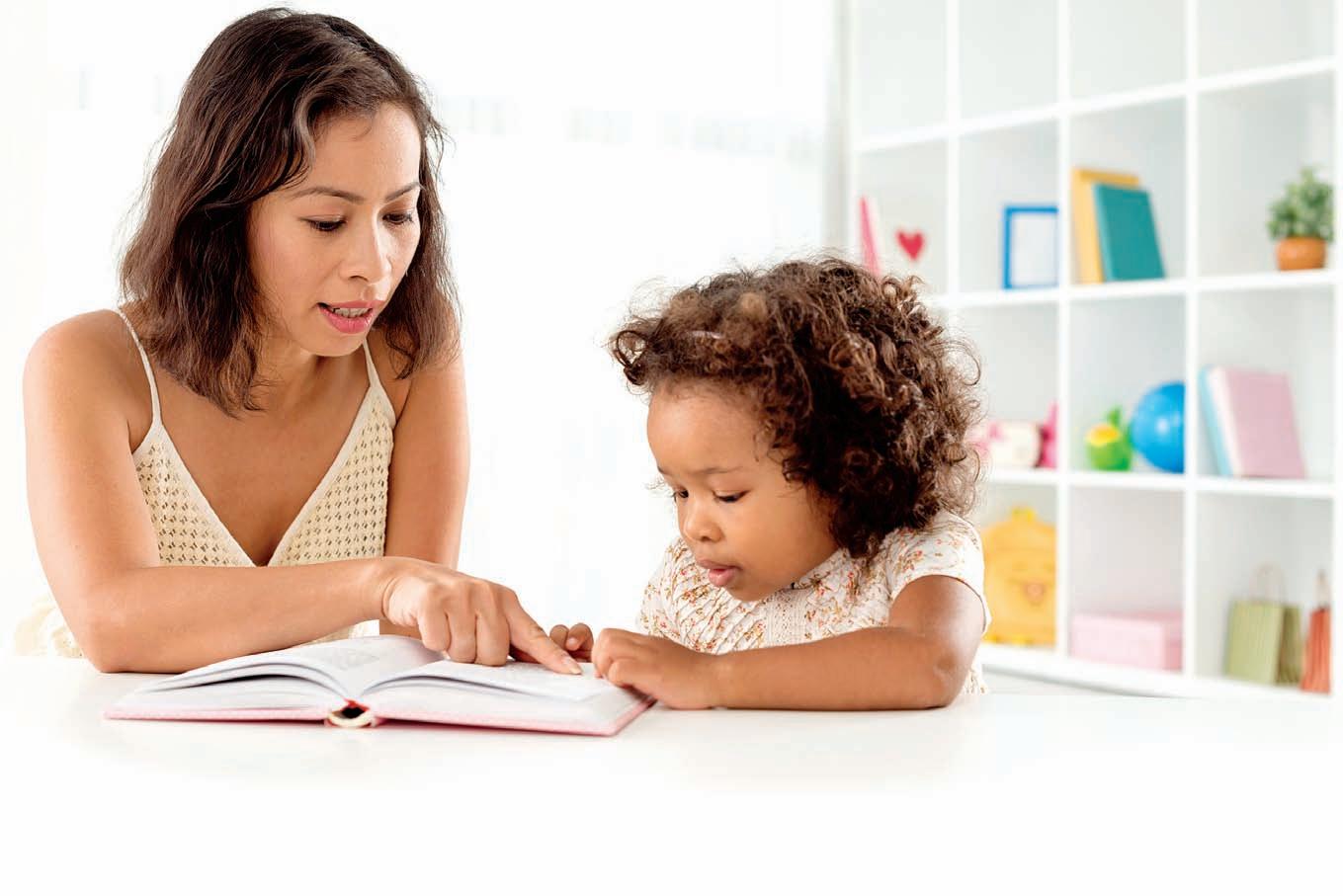
3 minute read
Learning Potential
ExpErts discuss thE importancE of Early childhood litEracy BY ERIN MEYERING
“Up until third grade, a child is learning to read, and then they read to learn,” said Amy Levy, family reading coordinator at Northern Nevada Literacy Council.
Advertisement
Child literacy and language development starts at birth.
According to Zerotothree.org, the brain is the only organ that is not fully formed at birth. During the first three years of life, trillions of connections between brain cells are being made. Building personal and physical relationships early on is what makes these connections and gives children the skills to expand their learning.
Even very young children can learn the alphabet, learn that reading happens from left to right and from top to bottom, and memorize many, many words. Eventually— like Levy said—children will read to learn instead of learning to read.
“The books that are chosen to read to children should be developmentally appropriate for the child’s age,” said Tina Springmeyer, Washoe County School District Child and Family Services director.
For infants and toddlers, she recommends chunky board books that are can easy for babies to hold onto it, books with colorful, stimulating pictures or even books with texture or peek-a-boo flaps that children can manipulate.
The key is interaction, said Susan Robinson, executive director of the Northern Nevada Literacy Council. Words are all around us, she said, and each one is an opportunity for growth.
The Northern Nevada Literacy Council offers a Family Reading Program in libraries across Washoe County and in their own facility, during summer months. Participants in the free four-week program meet once a week. Parents and children learn how to interact with each other and how to use books regularly in the home. The program seeks to make the process seem manageable for parents—even those who are busy, speak English as a second language, or can’t afford to purchase a new book every week. At the end of the program, each child can take a book home from the class to start his or her personal library.
“The point of the reading program is to realize that reading together is a very enjoyable activity,” said Robinson. “We’re encouraging [each parent and child to] make reading a part of life.”
Having books accessible at home—even if it’s just so a 2-year-old child can turn the pages and experience how a book physically works—is important. Parents should start a home library early and build it as their child gets older and expands his or her comprehension.
Literacy isn’t just about being able to read a third grade level adventure book, though. Early literacy can affect how well children do in school, which, in turn, affects the odds they’ll go to college, the odds they’ll earn a competitive salary.
According to the Pew Research Center and the Reading is Fundamental website, more than 8,000 students quit high school every day, limiting their earning potential and ability to become strong members of the workforce. And for Nevada, the statistic is just as bleak. According to the annual Quality Counts Report through Education Week, Nevada received a “D” on its state report card and ranked 50th in the nation based on student performance, school financing, and other qualities of K-12 public schools.
Encouraging children’s early literacy can lead to success in education. Parents can help their children get a head start by encouraging them to ask questions— maybe encouraging foreshadowing and discussion at story time. Reading aloud is great, but it’s more than that. Engaging in conversation is what promotes reading comprehension, which—in turn—boosts learning potential. Ω Resou Rces:
Washoe County Schools and Infinite Campus give parents the opportunity to find out their child’s reading scores. If they are not at the level they’re expected to be, the website offers tips on improving. For details, visit www.washoeschools.net and search for Infinite Campus.
Northern Nevada Literacy Council is a nonprofit organization dedicated to helping adult learners reach their education goals. The NNLC offers a Family Reading Program to help parents and children gain skills to use at home to further their children’s literacy and comprehension. All of its outreach programs are free. For details, call 356-1007 or visit http://nnlc.org.
Thirty Million Words works to encourage parents to use their vocabulary in promoting their children’s literacy. The more words a child hears by age 4, the better prepared he or she will be to read, comprehend, and write well. For details, visit http://thirtymillionwords.org.
Washoe County Library System offers reading programs for children during the summer, story times throughout the year, and access to books at every reading level. See your neighborhood’s library for more information on specific programs. For details, call 327-8300 or visit www2.washoecounty.us/library.

